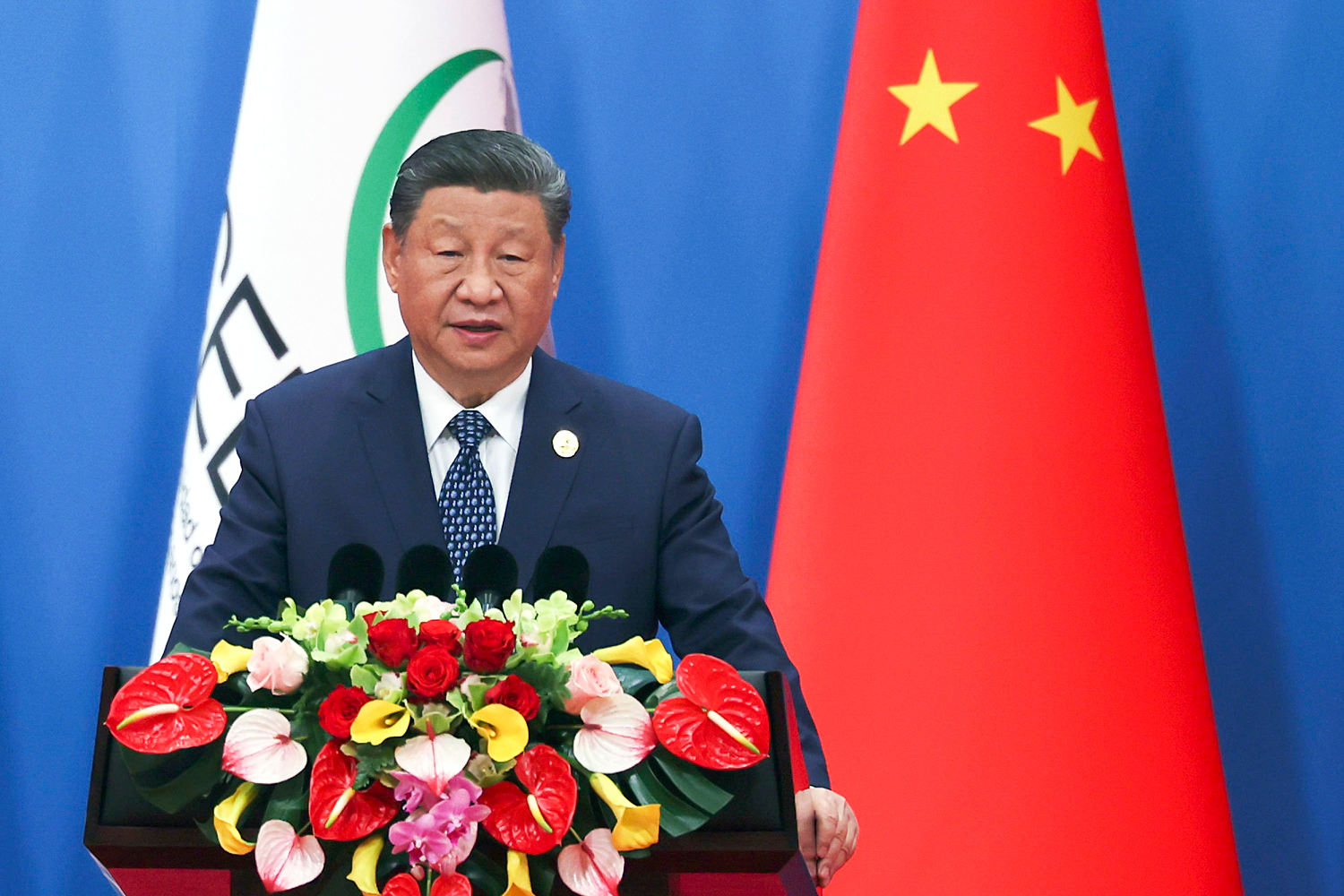
BEIJING — Xi Jinping didn’t even have to mention Donald Trump by name to get his point across.
The Chinese president was giving the hard sell to a room full of senior Latin American leaders on Tuesday. He promoted his country’s stability and fundamental reasonableness, providing a clear contrast between him and his U.S. counterpart’s erratic trade war.
“Bullying and coercion only lead to isolation,” he said in Beijing at the China-CELAC, or Community of Latin American and Caribbean States Forum. The context was clear.
The world’s two largest economies remain engaged in a trade war that has also engulfed nearly every country on earth, including more than 30 Latin American and Caribbean countries who sent heads of state and senior officials to Tuesday’s forum.
In his first public comments since the U.S. and China agreed to a 90-day pause on most of their levies in trade talks over the weekend, Xi said Beijing was ready to work with Latin American and Caribbean countries in the face of “rising geopolitical tensions and bloc confrontation, unilateralism and protectionism.”
While Trump has allies such as El Salvador President Nayib Bukele and Argentinian President Javier Milei, he has alienated much of Latin America with his threats to “take back” the Panama Canal and his derogatory comments about immigrants, said Bárbara Fernández Melleda, an assistant professor in Latin American studies at the University of Hong Kong.
“It seems that Donald Trump is certainly Latin American-adverse, and the way he’s been speaking about the Latin American community in the United States has been really sad for us,” she said.
“What’s happening, not just in Latin America, is that countries are saying, ‘Well, if these big countries are getting hostile, we should just find other partnerships.’”
China played up those tensions in the lead-up to the forum, rejecting the idea of Latin American and Caribbean countries being in anyone’s “backyard.”
“What the people of Latin America and the Caribbean seek are independence and self-determination, not the so-called new Monroe Doctrine,” Assistant Foreign Minister Miao Deyu was quoted as saying by Chinese state media, referring to the 19th-century U.S. approach to the region as its “sphere of influence” that Trump has been accused of trying to revive.
The Cuban ambassador to China, Alberto Blanco Silva, told NBC News after Xi’s speech that he viewed China “as a factor of stability, balance and opportunity — not only for the world, but also for Latin America.”
China is Latin America’s second-biggest trading partner after the United States, and Latin America is the biggest destination for Chinese outbound investment outside Asia. Last year, total trade between China and Latin America exceeded $500 billion for the first time, up from $12 billion in 2000.
Beijing has also been cultivating Latin American ties with an eye on Taiwan, the self-governing island democracy it views as a breakaway province. Most of Taiwan’s few remaining diplomatic allies are in the region, and China peeled away one of them — Honduras — in 2023.
Chinese influence in Latin America can be seen in the electric vehicles on its roads as well as massive infrastructure projects, such as the $1.3 billion Chancay port in Peru.
While there are concerns and criticism around such projects, Latin American countries’ relationship with China “seems to be more symmetrical than we are used to,” especially when compared with the U.S. and former colonial rulers in Europe, Fernández Melleda said.
Xi said Tuesday that China would import more from Latin America, encourage Chinese companies to increase investment and provide 66 billion yuan ($9.1 billion) in fresh credit to support Latin American and Caribbean financing.
The Chinese leader also said he wanted to deepen Latin America’s involvement in Beijing’s Belt and Road infrastructure initiative. Colombian President Gustavo Petro, who in January agreed to accept U.S. deportation flights after Trump threatened him with sweeping tariffs, said Monday that his country would join Belt and Road.
Eric Baculinao reported from Beijing, and Jennifer Jett from Hong Kong.

Leave a Reply